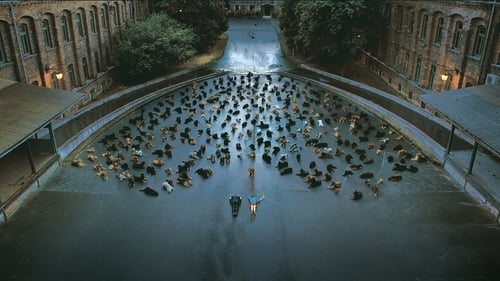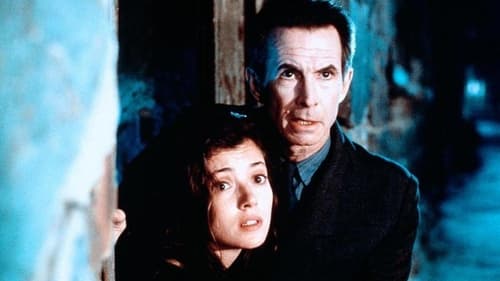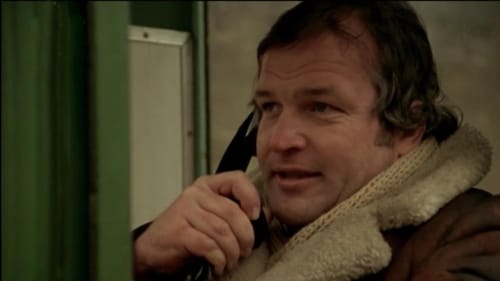
Neighbour
“하겐, 여기 있어..! 꼭 데리러 올게” 순종이 아닌 잡종견에게는 무거운 세금을 부과하는 헝가리의 정책으로 인해 하루아침에 집에서 쫓겨나게 된 개 ‘하겐’과 그를 찾아 헤매며 방황하는 13살 소녀 ‘릴리’. 인간의 손에 이용당하고 학대당하던 ‘하겐’은 생존을 위해 인간을 적대시 하게 되고 결국 유기견들의 우두머리가 되어 인간들에게 역습을 가한다. 도시 전체를 점령한 개떼들과 그를 통솔하는 ‘하겐’은 마침내 ‘릴리’와 다시 마주하게 되는데...

Karcsi, a Roma policeman, lives with Eva, a Swede. One day he is called to the scene of the murder of a wealthy trafficker named Schulter. He begins to investigate the crime, interrogate neighbours and suspects, and untangle a complex situation - one that he, himself, complicates even further. For he is a gypsy, who despite being adopted and raised by "regular" Hungarians, has his nose rubbed in his minority status every day. The film, which is based on the novel by Ákos Kertész, is a shrewd genre work full of dusky humour and surreal situations. Tabló follows a vivid succession of strange images that eventually lead to the emergence of the central story about a charismatic police officer on a tireless quest for the truth, though he must fight against virtually everyone and is just as fallible as the next person. Tabló makes a statement on the issue of race and racism - or, indeed, relations between any minority and majority.

Pincér felesége

Eszténa's mother

Mária (voice)
1991, farewell in Budapest. Mária remembers the past in tears. Her husband, Tibor, a chemist and a target of the KGB, left their apartment one evening to fetch some cigarettes only to be found drowned in the shallow Lake Balaton the following day. Their son, Peter, a student in Western-Europe, was found dead on the Danube embankment.

Nicole
An atmospheric, sub-hallucinogenic venture into the world of the unknown. The enigma facing a young woman is the identity of her father. Unfortunately for her, she becomes drawn into a small Romanian underworld of brooding menace, darkness, torture chambers, and bizarrely over make-over'ed vampires. The moody undertones and well chosen locations are certainly a bonus, as is the comically funny finale.

Teréz
A divorced middle-aged woman takes home an ardent suitor, only to discover that he prefers her teenage son. The mother is an overworked coffee-shop attendant, the suitor turns out to be a plain-clothes policeman and the boy is a frustrated flautist.

Mrs. Tölgyesi
Frigyes, shortly after immigrating to New York City from Hungary, leaves his family for the pleasures and gratifications of being a street bum. But as time goes by, the appeal of this lifestyle wanes. A series of adventures with other drifters reaches a dramatic conclusion when some thugs murder one of them. This startling event forces Frigyes to come to terms with his current situation and decide whether to return to the family he abandoned.

Nő
It is a tragedy, set among low-lifes on the outskirts of Budapest. Dramatic Exchange describes it as "Widely considered to be the most important Hungarian play of the last 20 years". The odd title of the play refers in the first instance to the chicken heads that an old woman feeds to her cat. However, it can also be taken to refer more broadly to the obtuse behaviour of the main characters in the play. The play is an odd mixture of pathos and nihilism, written against the bleak background of Stalinist totalitarianism from which Hungary was emerging. As with much modern drama, there is no hero in the play. The only noble behaviour that one can find belongs to one of the characters in the past, when he was a child, but he is no longer as he was. The hint that what once existed might be achieved again is the only faint ray of hope in a very bleak view of the human condition.

Anna
In this dense setting, the inhabitants of a large, claustrophobic apartment reveal their darkest secrets, fears, obsessions and hostilities.

Győző is a 38-year-old insurance agent. At a playground, he gets acquainted with the 40 year old Gábor, left by his wife, and with a career as an opera singer in pieces.

Szathmáry Kati
Three thirtysomething chemical scientists, Laci, Gyuri and Kati celebrate the success of their development program before New Year's Eve with drinking for several days. But the morning of New Year's Eve does not bring the expected recognition, because the nice, bald, old director is replaced by a young, bald, but disagreeable one. In a sodden atmosphere it becomes clear that everybody has an axe to grind in the informative discussions.

Varga Irén
One day Novák Erzsébet kindergarten-teacher destroys her papers, cuts her hair and closes her mouth forever. She prepares for suicide namelessly, then somewhere around Normafa she accepts being taken into an asylum.

The film takes place at the end of 1946. Rumours are spread that the food supply will not arrive for it has been robbed. Workers of the metal factory go on strike.

Flaksza Erzsi
A musical farce about women in the canning factory. The pretty Brigitta tries to commit suicide, because Laci left her, pregnant, but her mates save her.

This sensitive and ironic film points up two girl-faces: Vera is happy, but cold, while Borika is tired, but warm-hearted.

Öcsi, Bóna elvált felesége
After his divorce, Bóna Péter, a beginner film director needs a bigger amount of money to settle his financial problems with his ex-wife. He travels to Pécs to see Sárika, an old veteran. He has not seen his aunt for a long time, and she receives him very friendly, but she flatly refuses to lend him any money.














